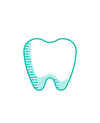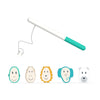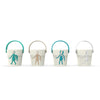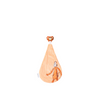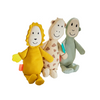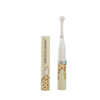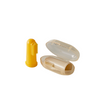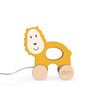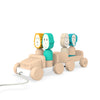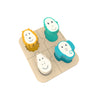Ask an Expert: Postnatal Depression - What is it, Why it Occurs & How to Help
As Mental Health Awareness Week approaches, we wanted to contribute to raising awareness around postnatal depression by speaking to professional counsellor and psychotherapist Leonie Adamson.
Leonie Adamson is a member of the BACP (British Association of Counsellors and Psychotherapists) and the clinical supervisor and director of Talking Therapy NI : Stalking NI.
When does postnatal depression occur? Is it always immediately after the birth of a child?
Postnatal depression can be a debilitating illness and it can happen to any woman after childbirth. Mothers may have their first babies and not experience it but for no apparent reason may find themselves experiencing symptoms after subsequent babies.
Postnatal depression can start immediately after the birth of a baby, or, it make take a few weeks for the symptoms to manifest themselves.
Why do some people suffer from postnatal depression? Can it happen to anyone?
Having a new baby is an exciting time for any mother, however, it can be exhausting as a young baby requires a lot of care and attention. Labour can often be a very difficult experience for women and it takes time to recover physically from this. Coupled with the demands of a new born baby, everything can seem overwhelming.
A traumatic birth where an unexpected caesarean or a prolonged labour can be hard for a new mother to cope with, along with the routine of feeding, changing and sleep deprivation that forms the routine of the baby’s first few weeks and months.
What are the signs of postnatal depression to watch out for in yourself, or in others?
It can often be confused with the “baby blues”, which are feelings of low mood, tiredness, postpartum pain and are very common after birth. Mothers may feel teary and emotional and the symptoms can be overwhelming and distressing.
The signs of postnatal depression can vary from woman to woman, but can include the following:
- Feeling that you can’t cope or bond with the baby.
- Being irritable all the time and feeling guilty that you are not a good mother.
- The shame of not being able to cope is another major factor, and you may compare yourself to other people who you perceive are wonderful mothers.
- Very often you might feel hopeless and helpless, you may experience low mood and become quite withdrawn. You can’t go outside to visit friends and tend to isolate yourself.
- You may eat too little or overeat to help yourself cope.
- You may experience symptoms of anxiety, palpitations, headache, feeling sick or being sick and in some instances experience panic attacks.
- The relationship towards your partner can change, you may feel vulnerable, or feel as though you have let him down in your role as a mother to your baby.
How can mothers tackle postnatal depression? Can it be treated?
Mothers may feel they will be judged or criticised if they say that they need help, but speaking to someone who understands will help mothers to talk freely and feel supported. If other people acknowledge these feelings are normal and to be expected, then this will lessen the stress that the mother experiences.
It is important to offer support and encouragement to mothers during this distressing time. Help them to understand that these feelings will subside and they are not reflective on their skills as a mother. Talking to supportive family and friends will also be important.
Mindfulness or yoga can help to lessen the symptoms of stress. Eating healthily and taking gentle exercise will also help.
There are health professionals, health visitors, the midwife and GP, who will be able to support mothers who feel they have or may have PND. In some cases, medication will be prescribed which may help to ease the symptoms and will be continually reviewed by a GP. This may only be for a short period of time.
Where can you seek help if you feel you may be suffering from postnatal depression?
One of the main support groups for parents is the National Childbirth Trust (NCT). They help with antenatal classes, breastfeeding classes and run a variety of courses across the UK as well as support groups, which gives new mothers the opportunity to meet other new mothers.
They can talk over a tea or coffee, discuss their personal stories of birth and motherhood and perhaps attend activities which will help them integrate back into society and start feeling more themselves.
Cognitive Behaviour Therapy can be very effective in helping to treat postnatal depression. This theory explores the thoughts, feelings and behavioural aspects of the person. It helps to explore negative automatic thoughts, catastrophizing and ruminating, and affords strategies to help cope with the symptoms more effectively. It is an educational model and can be used for any difficulties Counsellors can provide support also, face to face, through groups or online.
The Dr Julian app whom I also work with, provides a safe and confidential space to talk through any concerns you may have. The sessions can take place at any time, the client can choose which therapist they wish to work with and explore their thoughts and feelings in a therapeutic environment.
Becoming a mother is a transition which will take some time to adjust to, and there is no time limit. There are many resources available which will help mothers to understand how and why they are experiencing these symptoms. It is important that women are encouraged to talk openly about how they feel, without criticism.

